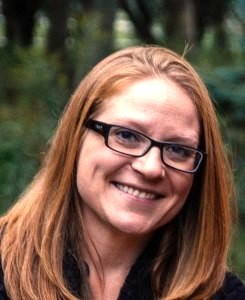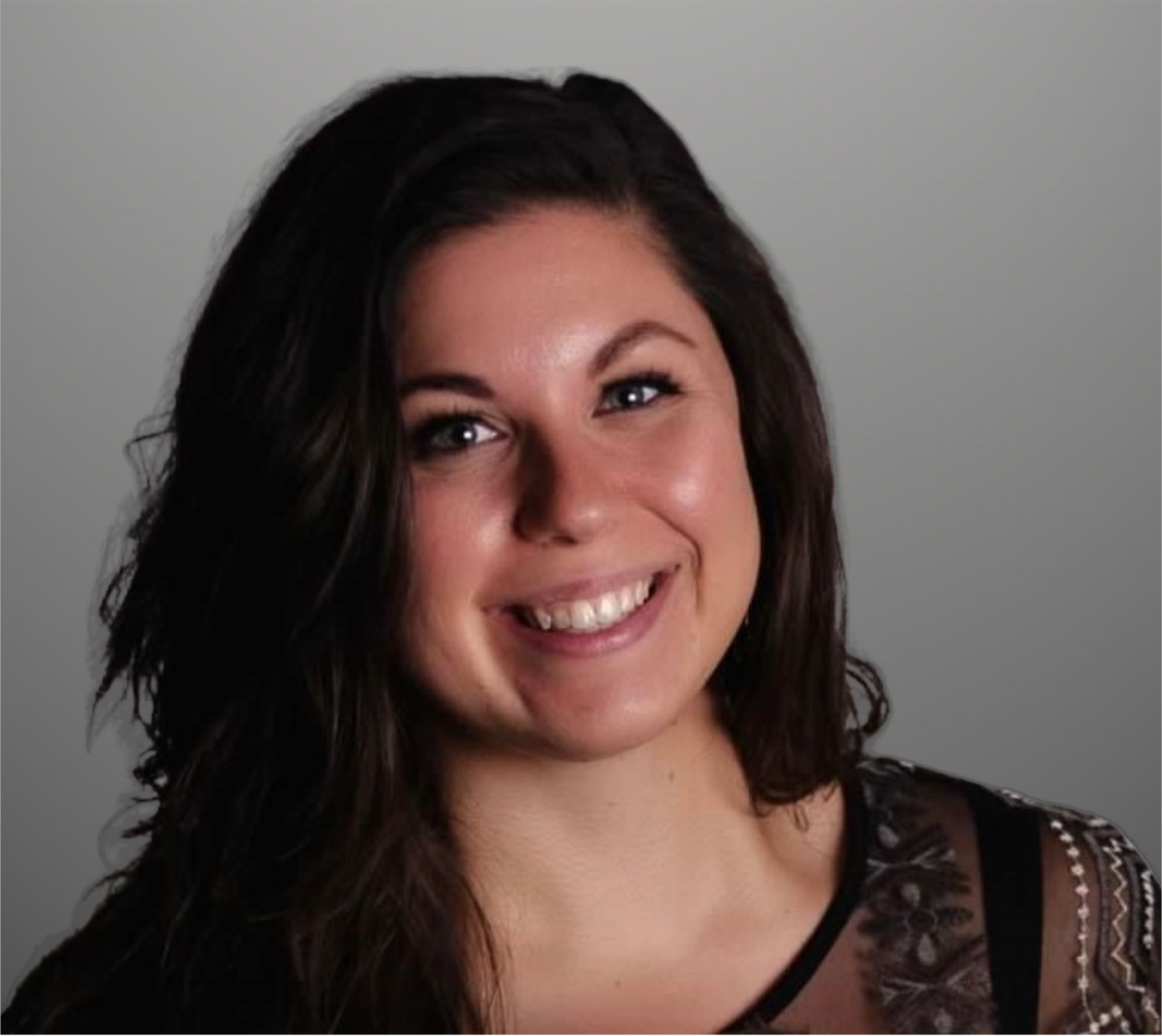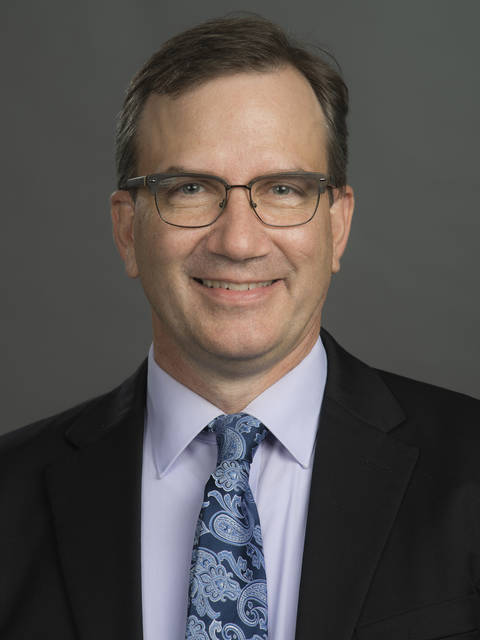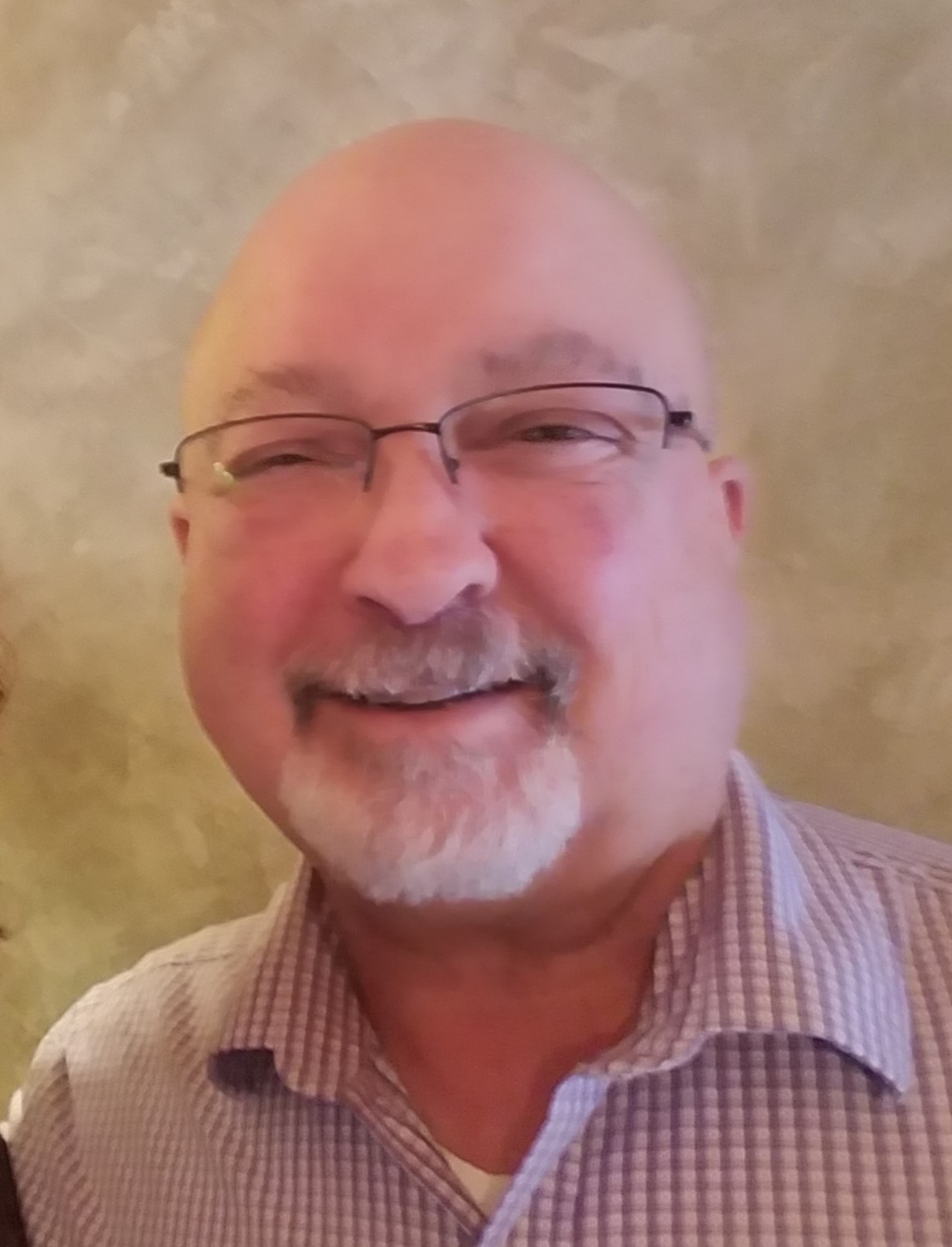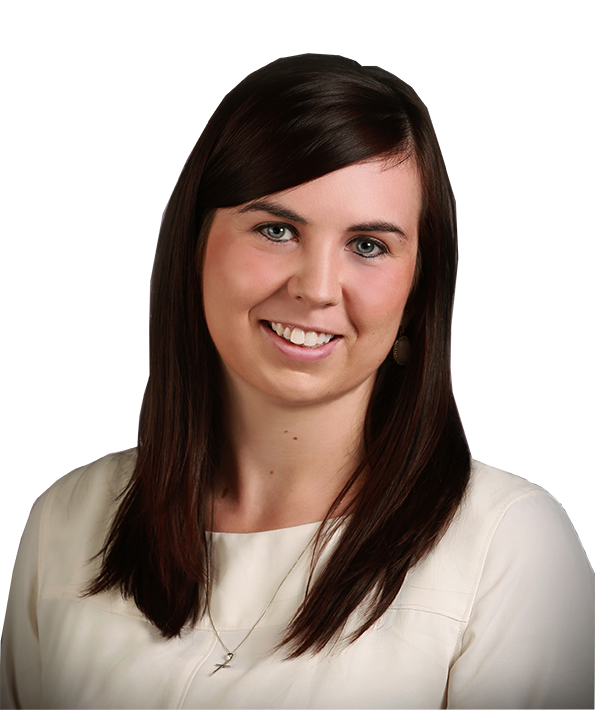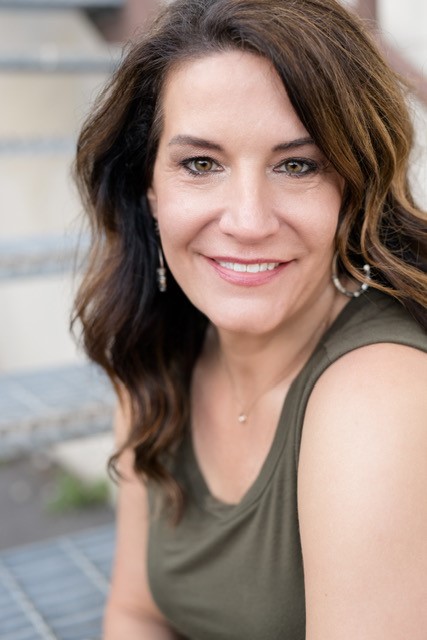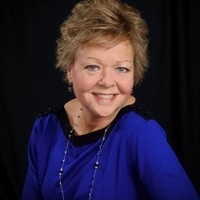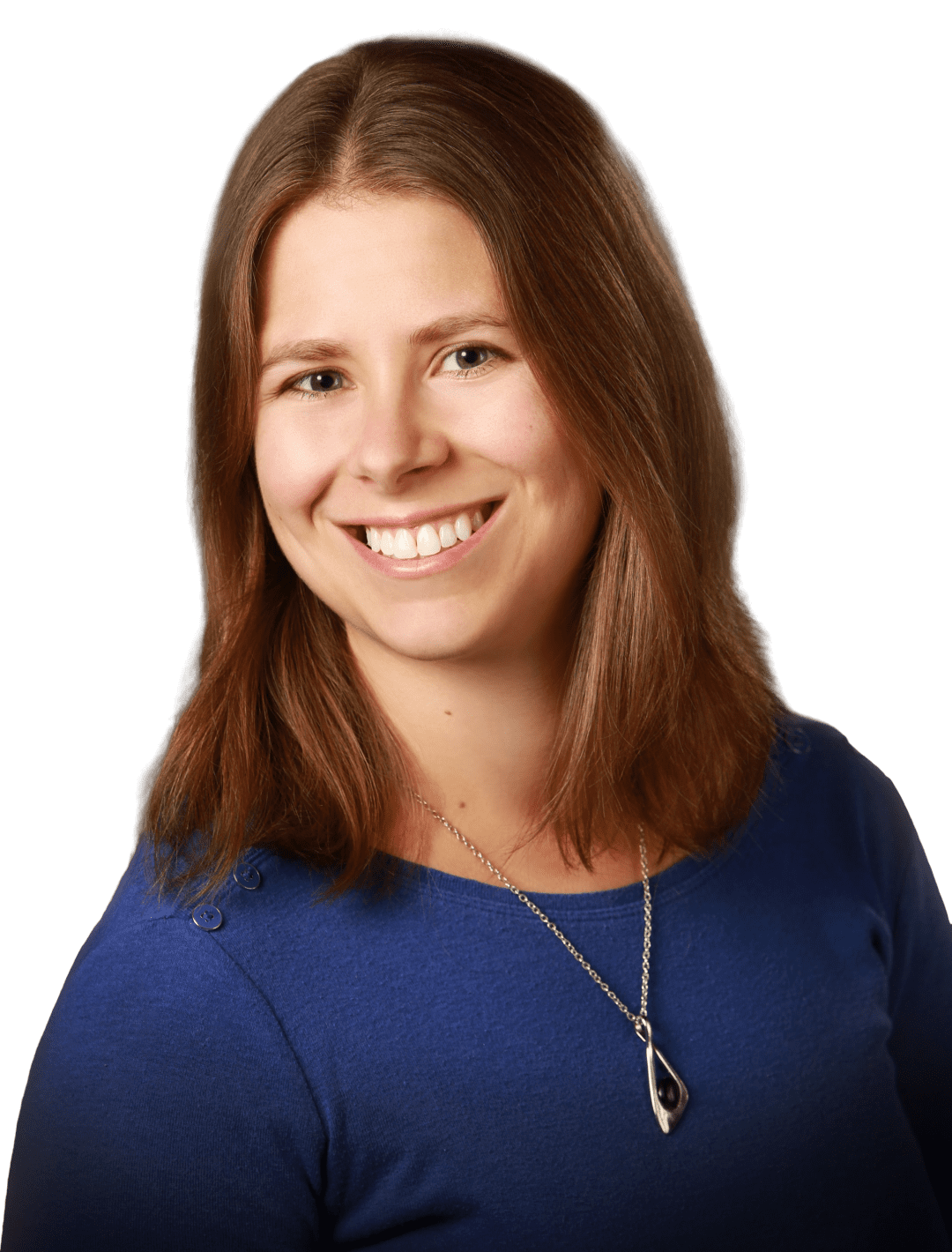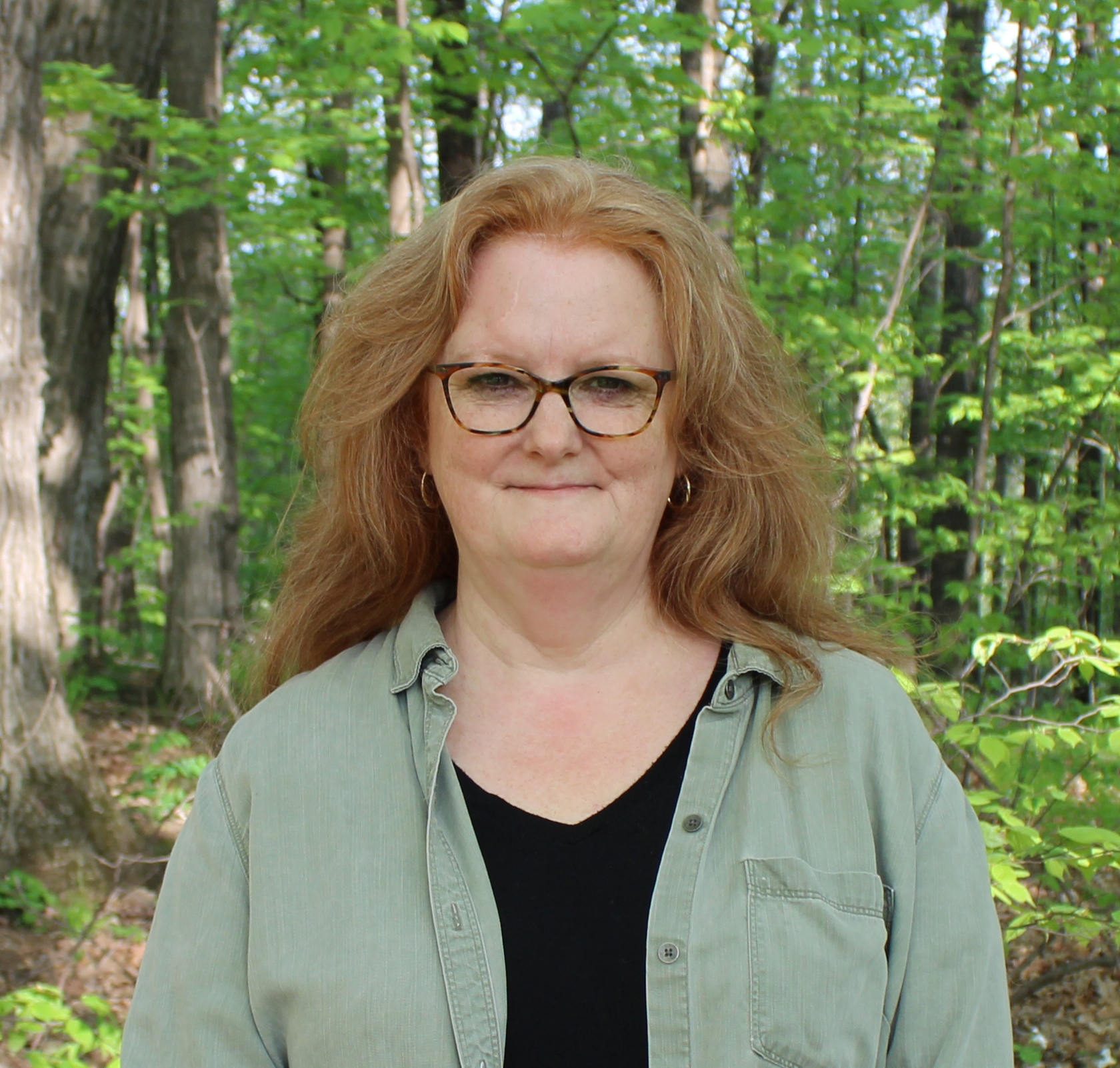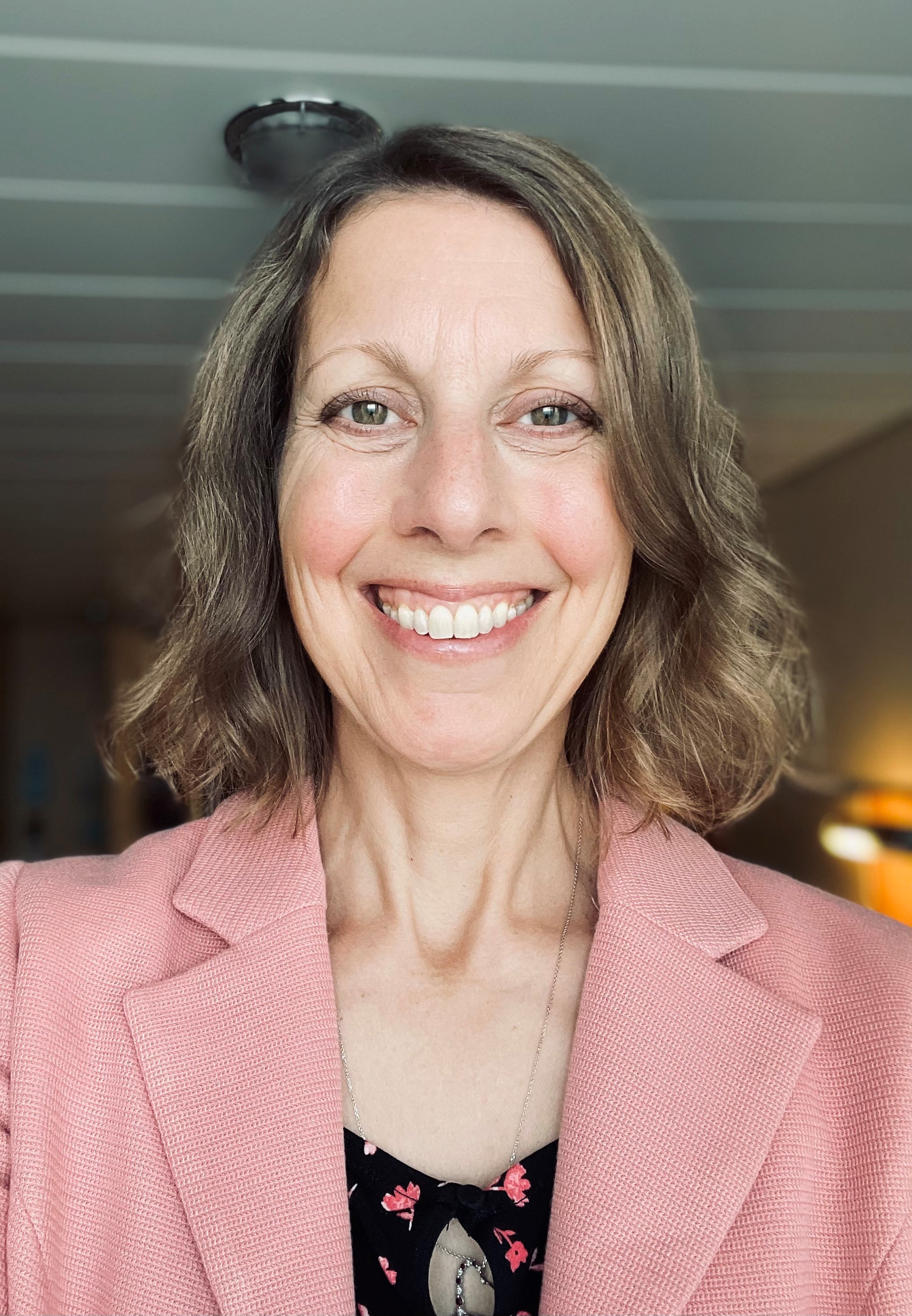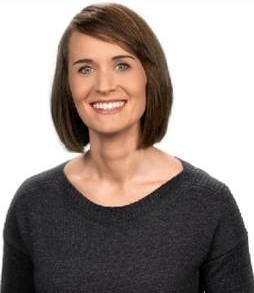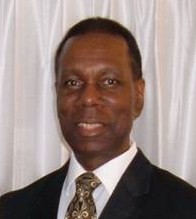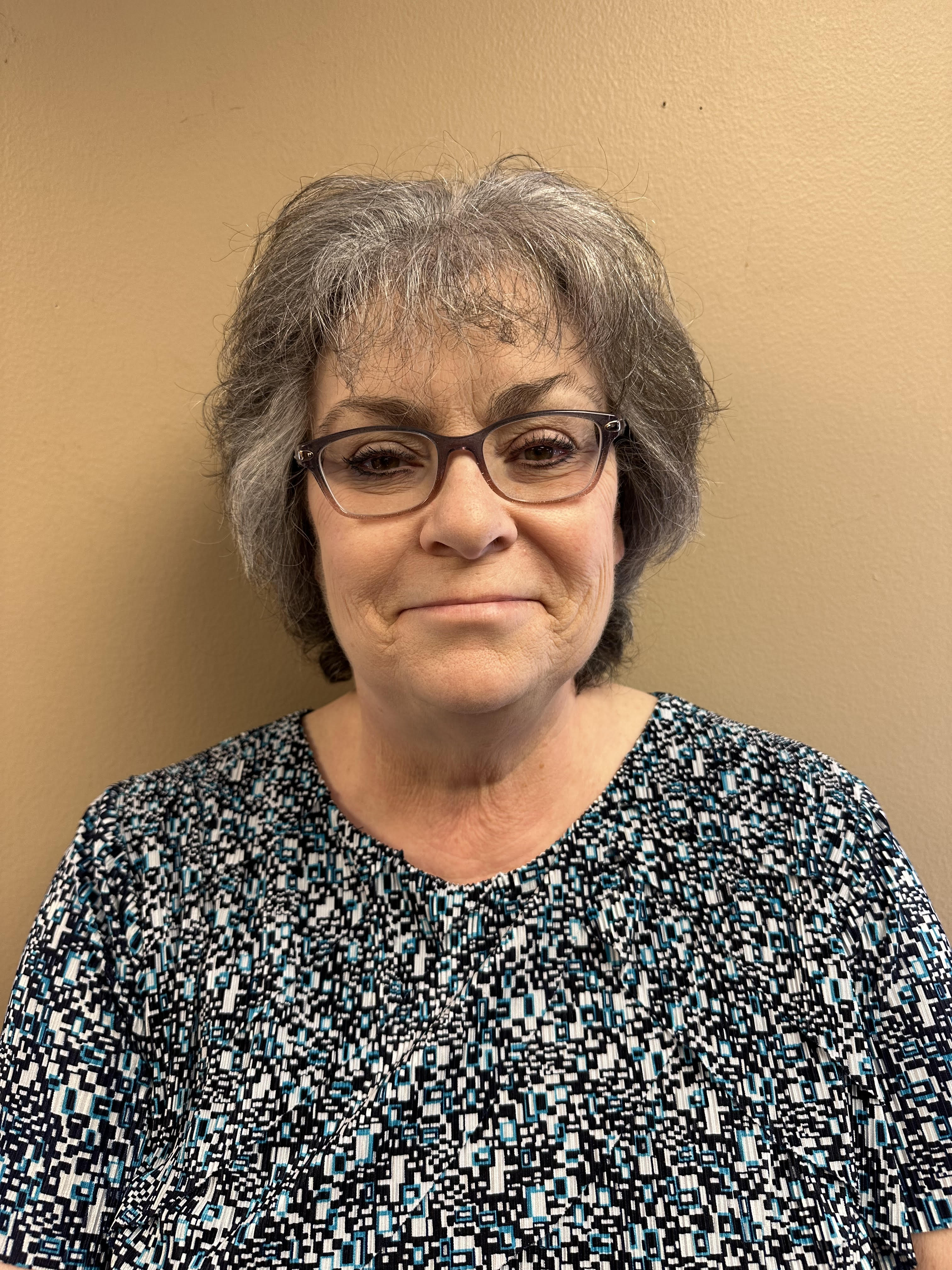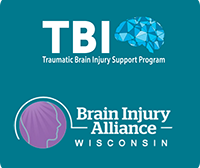
2023 Wisconsin Brain Injury Conference
Recognition, Recovery, and Resilience
The Brain Injury Alliance of Wisconsin, SOAR Fox Cities, and the UW–Madison Interprofessional Continuing Education Partnership are joining again to plan the Annual Wisconsin Conference on Brain Injury. Our conference will be back in-person at the Wilderness Resort in the Wisconsin Dells.
Thoughts from our 2022 virtual participants:I plan to use the information to better help the individuals I provide services to better navigate the system. I look forward to educating my new team further on Brain Injury and how to best work with individuals with Brain Injury and keep them engaged. I will share the information with the clients I work with during groups, staffings with family members and stakeholders. Try to incorporate some of the things discussed to best fit our individuals. |
PRACTICE GAP AND NEEDS
The Center for Disease Control estimates 2.8 million Americans experience a traumatic brain injury (TBI) each year (CDC 2017). One of the common threads among TBI survivors is the experience of trauma. Trauma can result from numerous things such as injury due to military conflicts, participating in sporting activities, intimate partner violence and assault, motor vehicle accidents, and falls, especially among the active yet aging population. In addition, survivors and their family members routinely experience additional traumas following a TBI such as ambiguous losses (e.g., identity), companionship, income/employment, support networks, and friends.
Supports for employment, mental and physical health for TBI survivors, as well as screening has expanded. TBI Research continually generates new insights and treatment options. Growth in TBI survivor supports and research creates a knowledge gap among healthcare professionals, and TBI survivors, caregivers, and their family members.
Elements of Competence
This educational activity is designed to change learner competence and focuses on the following competencies:
- Accreditation Council for Graduate Medical Education (ACGME)/Nursing: Medical Knowledge and Systems-based Practice
- National Academy of Medicine (NAM)/Nursing: Provide Patient/Person-Centered Care
- Center for the Advancement of Pharmacy Education (CAPE): Population-Based Care
- Interprofessional Education Collaborative Competencies: Interprofessional Communication
- Diversity, Equity, and Inclusion: Engage in Self-Reflection
Audience
This conference is intended for physicians, advance practice nurses, physician assistants, nurses, psychologists, social workers, researchers, brain injury survivors, caregivers, family members, and others with interest in traumatic brain injury.
Global Learning Objectives
As a result of participating in this conference, members of the healthcare team, individuals with a brain injury, caregivers and family members will be able to:
- Describe the lifelong challenges that affect a person with a brain injury.
- Explain treatment options available to people affected by brain injury, how to access them, and make the best use of them.
- Discuss the roles and responsibilities of interprofessional healthcare team members who care for brain injury survivors.
- Apply best practices for brain injury treatment to their clinical practice.
Thank you to our Sponsors and Exhibitors
Sponsors
The University of Wisconsin–Madison Interprofessional Continuing Education Partnership (ICEP), the Brain Injury Alliance of Wisconsin, and SOAR Fox Cities gratefully acknowledges the financial support from AbbVie, Brian Hodgkiss Injury Lawyers, Habush Habush & Rottier, Neuroscience Group, Sargento, and the Wisconsin Department of Public Instruction.
Exhibitors
Clearview Brain Injury Center, Blugold Brain Injury Group, Brain Injury Alliance of Wisconsin, Brain Injury Resource Center, Hodgkiss Injury Lawyers, Habush Habush & Rottier, Neuroscience Group, and SOAR Fox Cities, Inc.
Funding for the TBI Support Program of SOAR Fox Cities is provided by a grant from the Basic Needs Giving Partnership Fund within the Community Foundation for the Fox Valley Region supported by the U.S. Venture Fund for Basic Needs, the J.J. Keller Foundation and other community partners.
Agenda
Monday, May 8, 2023
7:45 AM - 5:00 PM (All times are in CST)
Time (in CST) | Session | Learning Objectives |
| 7:45 - 8:15 AM | Registration & Welcome~ Audrey Nelson, MS *No continuing education credit is being provided for the Welcome Session | |
| 8:15 - 9:15 AM | Keynote ILived Experience of the Invisible Wounds of War & Life ~ Ashton Kroner, USMC Veteran and Outreach Manager | 1. Describe three ways which brain injuries and emotional trauma in women are unique and have been illustrated by patient experience. 2. Develop best practices in the care and education of women with brain injury and emotional trauma to facilitate recovery and positive long-term outcomes. 3. Discuss a female patient's perspective of "better" care practices for women who have sustained a TBI and emotional trauma. |
| 9:15 - 10:15 AM | Keynote IIThe Justice System and Brain Injury: ~ Danielle Ciccone-Coutre, PsyD, ABPP | 1. Identify connecting factors among the justice system and those who have sustained a TBI. 2. Discuss why the links between the justice system and brain injury are important for everyone. |
| 10:15 - 10:30 AM | Break and Exhibits | |
| 10:30 - 11:30 AM | Breakout Sessions I | |
Agitation Management After Brain Injury ~ Mary Voegeli, FNP-BC, APNP, CRRN, CBIS | 1.Describe the influence of agitation on recovery from traumatic brain injury. 2. Create a plan of care for the TBI patient, incorporating evidence-based practices for effective management of agitation. | |
Management and Prevention of mTBI in the Elderly ~ Maria Joseph, DPT & Jenna Kadlec, PT | 1. Identify risk factors and common symptoms of mTBI in elderly individuals, as well as differentiate between associated changes in physical functioning due to aging. 2. Explain how to reduce the risks for a mTBI in elderly patients, family members, or yourself. 3. Describe the role of the physical therapist as part of the interprofessional health care team caring for elderly mTBI patients. | |
How My Brain Injury Changed My Life & Yours ~ Dale Taylor, PhD, MTBC | 1. Identify the benefits of biomedical music therapy for TBI patients. 2. Describe the role of the music therapist as part of the interprofessional health care team caring for TBI patients. | |
| 11:30 AM - 12:30 PM | LUNCH | |
| 12:30 - 1:30 PM | Breakout Sessions II | |
Return to Learn after TBI ~ Nicole Shafran, SLP | 1. Explain the assessment criteria for determining if a person who has sustained a TBI is ready to return to learning. 2. Identify strategies that may strengthen the ability for someone with a TBI to return to learning . 3. Describe the role of the speech-language pathologist as part of the interprofessional health care team caring for TBI patients. | |
Trauma Informed Care & Brain Injury: Why It's Important ~ Kalli Reinheimer, MSW, CBIS & Audrey Nelson, MS | 1. Describe the impact of trauma on brain development, relationships, and the ability to manage stressors. 2. Identify implications for the care and treatment of patients who have experience trauma. | |
Warrior of the Storm ~ April Lackowski, Emotional/Behavioral Special Education Specialist & Parent | 1. Describe the family perspective of dealing with the news of a loved one's brain injury and then interacting with the unfamiliar medical and community services. 2. Identify different strategies to help family members more easily navigate service delivery systems. 3. Explain how service systems can be more responsive to the needs of families going through the traumas of a loved one's brain injury. | |
| 1:30 - 2:30 PM | Breakout Sessions III | |
Poetry is Healing: Self-Discovery and Peer Support ~ Jerry Hoepner, PhD, CCC-SLP, ASHA Fellow, Katie Paulson & Lisa Monopoli | 1. Explain how poetry, as a creative process, can impact healing, self-worth and identity of patients with TBI. 2. Recommend poetry as a form of creative expression within the care management plan. | |
Autonomic Dysfunction After Brain Injury ~ Christine McGee, DNP, APNP | 1. Describe signs and symptoms of autonomic dysfuction following TBI. 2. Develop evidence-based care plans for patients experiencing autonomic dysfunction after mTBI. | |
Nutritional Consideration in Concussion Recovery ~ Kaitlynn Daseke-Collette, RN, ADN | 1. Describe the process of neuroinflammation. 2. Identify neuroinflammatory foods. 3. Identify how nutrition supports and promotes improved outcomes in concussion recovery. | |
| 2:30 - 2:45 PM | Break and Exhibits | |
| 2:45 - 3:45 PM | Keynote: Survivors Panel ~ Lisa Monopoli, Katie Paulson, Craig Jordan & Sasha St. John | 1. Describe the impact of TBI on the life of a survivor. 2. Discuss what survivors want healthcare providers to know when providing care. 3. Apply a person-centered approach to caring for TBI survivors. 4. Identify resources to support survivors. |
| 3:45 - 4:45 PM | Keynote: Family Panel ~ Shirley Krause, April Lakowski & Lois York-Lewis | 1. Explain the impact of TBI on families. 2. Examine the role of advocacy for a TBI survivor. 3. Identify resources to support family members. |
| 4:45 - 5:00 PM | Summary of Key Points & Poems ~ Audrey Nelson, MS | Identify your key take-aways from this conference. |
Program Changes
Emergency situations occasionally occur and may necessitate topic or speaker changes. The Brain Injury Alliance of Wisconsin, SOAR Fox Cities, Inc., and the University of Wisconsin–Madison ICEP reserve the right to alter or substitute a topic or speaker without prior notification.

Rooms at the Wilderness Resort
Discounted Rooms Available at the Wilderness Resort (Reserve by April 7th). Double Rooms -$109. Call 800-867-WILD and ask for Leader #999611.
Speakers
Danielle Ciccone-Coutre, PsyD, ABPP | Danielle Ciccone-Coutre, PsyD, ABPP Dr. Ciccone-Coutre is a Board Certified Rehabilitation Psychologist. She currently serves as the Chief Regional Psychologist for the Department of Corrections/Division of Community Corrections in Southeastern Wisconsin. Her career foci have included predominantly, work with traumatic brain injury (TBI) and posttraumatic stress disorder across the developmental lifespan. She is committed to the education and advocacy of TBI to promote awareness and implement change to support survivors, and those involved in their care. She spearheads and supervises research of TBI and interrelated disability(ies) in the Veteran’s Administration. She is also collaborating on female specific research in DOC/DCC, with interest in the role of neuro/rehabilitation psychology and neuropsychological aspects of criminal behavior. Dr. Ciccone-Coutre also maintains a private practice in northern Illinois. |
Kaitlynn Daseke-Collette, RN, ADN | Kaitlynn Daseke-Collette, RN, ADN My name is Kaitlynn Daseke-Collette. I am the Concussion Nurse Navigator at Neuroscience Group. I started with Neuroscience Group in 2015 as an LPN while obtaining my associates degree as a Registered Nurse from Fox Valley Technical College. Most of my nursing career has been dedicated to physical medicine and rehabilitation, including outpatient concussion care. During a period away from full-time status with Neuroscience Group, I worked surgical services at a level II trauma hospital providing direct support for stable trauma transfers. It was during this time that I gained experience in acute brain injury and my interest in neurorehabilitation peaked. I returned full-time to Neuroscience Group in 2020 as an RN supporting the concussion care team and in 2022 accepted the role of Concussion Nurse Navigator. I have special interests and training in a holistic approach to neurorehabilitation, specifically nutrition and lifestyle modifications that promote optimal wellness and support healing. |
|
Jerry Hoepner, PhD, CCC-SLP, ASHA Fellow Dr. Jerry Hoepner is a Professor at the University of Wisconsin - Eau Claire, Department of Communication Sciences and Disorders. He began teaching for UWEC CSD in 2003. He teaches courses in anatomy and physiology, undergraduate research, acquired cognitive disorders, dysphagia, and counseling. His research addresses healthcare perceptions, video self-modeling interventions for persons with acquired language or cognitive disorders, counseling methods and training, undergraduate research, non-course based learning, and instructional pedagogies. He is a founding editor of Teaching and Learning in Communication Sciences and Disorders (TLCSD) and editorial board member for Clinical Archives of Communication Disorders (CACD). He is an Aphasia Access affiliate and interviewer for the Aphasia Access Conversations Podcast series. He is a co-founder of the UWEC CSD SoTL Lab (scholarship of teaching and learning research). He continues to have a regular role in clinical contexts and supervision. He is a co-founder of the Chippewa Valley Aphasia Camp, co-founder of the Mayo Brain Injury Group, and founder of the Blugold Brain Injury Group. He also co-facilitates a Thursday Poetry Group for people with brain injuries and aphasia. Outside of work, Jerry is an avid outdoors person and enjoys traveling/spending time with his family. |
Craig Jordan, MS, TBI Survivor | Craig Jordan, MS, TBI Survivor Craig Jordan is retired, happy, and enjoying life in New London, Wisconsin. He is also a survivor of a brain injury that occurred in 1985 while on duty as a ski patroller. Following his injury he worked for several years gaining back areas of functioning that had been affected, such as motor skills, speech, executive skills, memory, and social interaction. Even today, he continues to work on therapeutic activities to maintain skills in the areas of memory, language, and problem-solving. Unable to return to his previous employment in the area of accounting, Craig entered a graduate program in rehabilitation counseling at UW-Stout and received his degree in 1996. For next 21 years he supported individuals with brain injuries through his roles as a case manager, group home staff, day program staff, independent consulting and coaching, and serving as both a board member and Community Advocacy Specialist for the Brain Injury Association of Wisconsin. He remains active in the brain injury support group in Appleton and the Brain Injury Advocacy Program, under the umbrella of SOAR Fox Cities (an organization serving individuals with disabilities). Outside of his advocacy work, Craig enjoys word games, reading, golfing, and anything to do with aviation. Craig has been married to his wife Amy since 1992. |
Maria Joseph, PT, DPT | Maria Joseph, PT, DPT Maria Joseph is a Physical Therapist at the Neuroscience Group in Appleton, Wisconsin specializing in the care and treatment of patients with concussion/mTBI through the Summit Concussion Program. She loves collaborating with the interdisciplinary team through the program, to help tailor treatment specifically to these patients in order to best serve their individual needs. Maria received her Doctor of Physical Therapy Degree from Marquette University in 2015. She has spent 7 of her 8 years practicing as a PT at the Neuroscience Group treating a wide variety of patients, but most recently focusing and specializing in neurological disorders, vestibular dysfunctions and concussion/mTBI. In her free time, she enjoys chasing her energetic, outdoor loving one year old, hiking national parks with her husband and family, and getting all the cuddles from her 3 year old Goldendoodle. |
Jenna Kadlec, PT | Jenna Kadlec, PT Jenna Kadlec is a physical therapist at Neuroscience Group in Appleton, WI, specializing in treatment of patients with mTBI in the Summit Concussion Program. She has been a practicing PT for 24 years and enjoys the challenge and complexity of treating patients with mTBI/concussion (mild traumatic brain injury). She especially enjoys tailoring the treatment program to each patient’s specific needs and goals, while sharing her knowledge of the innate healing ability of the human body as the patient experiences their unique journey towards recovery. Jenna received her Bachelor of Science Degree in Physical Therapy from The University of Wisconsin. Outside of work as a PT, Jenna is busy with her three teenage sons and two rescue dogs. She and her husband love to travel and listen to live music events. Jenna is also a registered yoga instructor through the Yoga Alliance. |
Shirley Krause, TBI Family Member | Shirley Krause, TBI Family Member My name is Shirley Krause, and my late husband Randy was a TBI and mid-brain stroke survivor. In September 2019, while Randy and I were on vacation in Croatia, Randy suffered a massive spontaneous subdural hematoma and required an emergency craniotomy. He survived the surgery and the 11-hour medical air evacuation back to the United States. Randy also suffered a mid-brain stroke, that affected his right dominant side. I spent the next 9 months fighting to save his life. My obstacles were insurance and medical staff at all levels and facilities. Four days after we were back in a United States hospital, I was told by “one” doctor, right in front of Randy, “You need to decide when to let him go in the next 4-6 weeks, because look at him, would you want to live like that”. It was then that I became Randy’s medical team quarterback, advocate, and only chance of survival. Randy came out of the coma and did all the things that some of doctors said he wouldn’t (wake up, speak, think, recognize family and friends, read, write, eat, or drink, sit up or walk). The walking was with full assist, because of the stroke and impact to the right side, but he wanted to walk and knew how to. Through this all, I was using a wholistic approach with him. Most of all, he was always surrounded by family and friends, given love and encouragement, never alone. Randy and I were inseparable as a couple, even after 30 years of being together. He needed full care and extensive therapy, so he had to be in a skilled care nursing facility until he was strong enough to pivot from the bed to the wheelchair. We were getting there and even getting movement on the right side. On March 16th, 2020, I was given devastating news that no one could enter the facility because of the COVID pandemic. I could only visit him through a window. I literally spent hundreds of hours trying to find a way to be with him. I wanted to bring him home, trying to change our house to accommodate him, plus hire nurses to help with him. People were frozen with fear and hiring someone was becoming an impossible task. I tried hiring lawyers, contacted every level of government official including the President; no one would help. He went from never being alone, to being all alone. He started to diminish, losing weight and more and more moments of what we called “zoning out”. The staff said he was the same weight and didn’t act that way with them. After over 2.5 months, Randy ended up in the hospital, with his progress reverting to the beginning days. I was able to be with him in the hospital, and it was shocking to see his condition. The doctors said there was nothing more they could do, and I should arrange for hospice. I brought him home for the first time in 9 months. I didn’t leave his side until his final breath on July 4th, 2020. Today, I devote my life to his life and legacy. Through Mental Health America Lakeshore, I founded the widows support group Lemonade. Through my employer, I am implementing a Life Planning Series that includes end of life planning, international travel emergency preparedness, and grief support in the workplace. The final two are advocacy and rights for disabled and elderly in the nursing homes and a TBI foundation in my husband’s name – The Randy Susen Foundation for TBI Survivors. The foundation is at the idea state, but in the interim, I am helping families advocate for their loved ones in the early stages of a brain injury. |
Ashton Kroner, USMC Veteran and Outreach Manager, TBI Survivor | Ashton Kroner, USMC Veteran and Outreach Manager, TBI Survivor Ashton served in the United States Marine Corps for five years as a Field Radio Operator with 8th Communications Battalion, Camp Lejeune, North Carolina. She deployed in 2009 in support of OIF receiving orders as a Lioness attached to 1st Battalion, 8th Marines in Al-Taqaddum Air Base. In 2011 she deployed to Camp Leatherneck in support of OEF with 8th Communications Battalion. From 2012 to 2015 she was a Recruiter stationed with 1st Marine Corps District RS Albany, New York. Ashton completed her Bachelor’s degree from Purdue University, graduating as a Summa Cum Laude in July 2018 and recently received Masters in Business Administration from Purdue. . She worked at a medical device company as the Director of Recruiting prior to coming to the Road Home Program. She is a member of the Women Marines Association IL-2 Blanche S. Osborne Detachment, and the McHenry Detachment #1009 Marine Corps League. |
April Lackowski-Postel, BA, | April Lackowski-Postel, BA, TBI Survivor Family Member April Lackowski-Postal is a Middle School Emotional Behavior Disorder Special Education Teacher for Clintonville School District and Mentor for Sources of Strength Social Emotional Learning Program. She has a dual degree in Elementary and Special Education with an emphasis on Emotional Behavior Disorder. April is President and Founder of The Traumatic Brain Injury Fight for Life Team and has been a presenter at F.O.C.U.S for Theda Care in the Fox Cities. She is honored to be invited speaker at the 2023 Wisconsin Brain Injury Conference and is looking forward to sharing her son's story. Even as much, she is looking forward to sharing it as “Our Story” for as we know, TBI affects everyone. April is a wife and mother of 4 children ages 27, 24, 18, and 16. She enjoys playing the drums, gardening, raising chickens, and anything outdoors and resides in New London, WI. |
| Christine McGee, BS, BSN, DNP, APNP Christine is an Advanced Practice Nurse Practitioner at Neuroscience Group. She has been a part of the concussion care team at Neuroscience Group for the last five years treating head injury patients. She thoroughly enjoys working in neurorehabilitation and assisting patients as they progress towards their goals. One of her passions is spending time educating patients so that they feel comfortable with their diagnosis and treatment plan. Christine has a Bachelor of Science Degree in Biology from UW-Eau Claire, a Bachelor of Science in Nursing from Bellin College, and a Doctoral Degree in Nursing Practice from UW-Oshkosh. |
| Lisa Monopoli, TBI Survivor/Warrior I am a face of Brain Injury. My name is Lisa Monopoli. Nurturing is a big part of who I am. A mother of three productive adults, and three beautiful grandchildren. I’ve worked with children, most of my life in various settings. Our home was always a gathering place for my children and their friends. I was a hairdresser by trade. My first traumatic brain injury (TBI) happened at age 16. I was thrown head first through the side door window of a car. Splitting my forehead open, followed by banging the back of my head on the curb repeatedly because my body was in shock. This closed brain injury, led to memory loss, seizure disorder, inner ear concussion, and more. Five years later, I was dragged by a pick up truck causing a second TBI. The back tires ran over my mid section, causing neck and lower back trauma, bursitis, a rotating pelvis, and extensive road rash. Doctors mistakenly declared my brain injury was healed shortly thereafter. I spent many years ignoring my pain, pushing my body and mind beyond their limits with the thought of being healed. I’ve had more surgeries than I care to recollect. I continue to live each day in chronic pain. Brain injury “flooding,” sensory overload resulting from too much information for the brain to organize and process, led to embarrassment, shame, guilt, and more. A house full of people just talking and doing life led to overstimulation and random verbal outbursts, followed by seizures. My journey has been long and continuous. Poetry has been healing for me, like peeling back the layers of an onion. I found people who love me as I am. I enjoy writing poetry with like minded survivors. I am both humbled and grateful to be asked to speak. |
Audrey Nelson, MS | Audrey Nelson, MS In 1981 Audrey experienced a brain Injury in a car accident during her Freshman year of college; she was 18. In 1983, she was a co-founder and facilitator of a brain injury support group in Eau Claire that met for over 30 years. Audrey earned a Bachelor of Social Work (BSW) in 1987 and subsequently, a Graduate degree in Vocational Rehabilitation in 1994. Since 1985, she has had several different roles on the board of directors of the Brain Injury Alliance of Wisconsin. She also currently serves on the Mayo Clinic Brain Injury Advisory Board. Audrey began Reality Unlimited, LLC in 1995, providing residential care for individuals with brain injury. She recently sold this company and is looking forward to the next chapter in her work in brain injury advocacy. One of her most exciting projects was started in 2020, a brain injury & poetry support group that recently published a book of poetry. She is the mother of 3 adult children and recently, a proud grandmother who loves to spend time with her family. |
| Kathryn Paulson, TBI Survivor My name is Kathryn Paulson. I acquired my brain injury December 20, 2016 on a cool Wisconsin winter evening. I fell on black ice which resulted in a skull fracture and subarachnoid hemorrhage near the temporal lobe of my right side. Prior to my accident I had worked for nineteen years as a respiratory therapist. My work life is different now, in fact, many details of my life changed, but not all of the changes were bad. My journey with poetry really began in October of 2020 with what was supposed to be three classes with Brendan Constantine. With Brendan, Jerry Hoepner Ph.D, UW-Eau Claire speech language pathologist student clinicians and my husband’s encouragement, I have blossomed. Poetry has helped me in ways I never would |
Kalli Reinheimer, MSW, CSW, CBIS | Kalli Reinheimer, MSW, CSW, CBIS Kalli Reinheimer worked in the field of brain injury for over 22 years. It was during that work that Kalli learned about trauma informed care (TIC) and became interested in a correlation between childhood trauma, the (sometimes) risky behaviors that precipitated the TBI and difficult behaviors some survivors of TBI displayed in rehab and day programming. This interest led to Kalli to becoming a (TIC) trainer and assisting with training the entire staff of her previous employer. Kalli has since moved on from working with survivors of TBI and is no longer an official TIC trainer, however, her passion for this work hasn’t waned. She is now the VP of Programs for Easterseals Southeast Wisconsin and is on a mission to help her new organization become trauma informed. Kalli is married and has an 11-year-old son, energetic dog, and 4 adult stepchildren. In her spare time, she enjoys spending time with family, reading, exercising, and watching her son play baseball. |
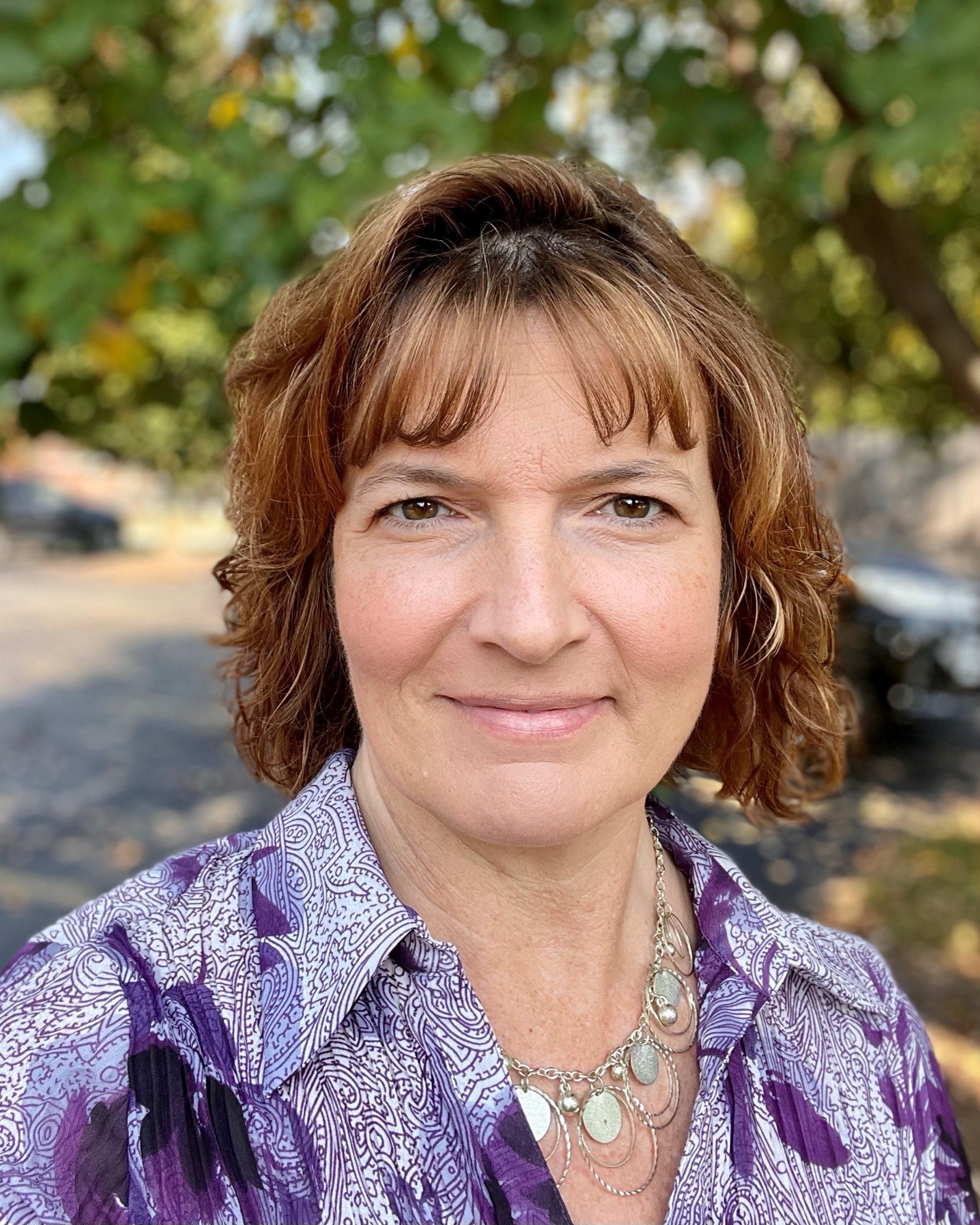 Sasha St. John, BS, TBI Survivor | Sasha St. John, BS Sasha St. John is the Office Manager at Yellow Wood Chiropractic in Appleton, Wisconsin. She graduated from Eastern New Mexico University with Bachelor of Science degrees in Human Resources and Business Administration. For over eight years, she led a successful community support group and served on the Board of Directors for a non-profit international organization focused on women’s health. After sustaining a Traumatic Brain Injury, she turned her efforts to supporting other TBI survivors. Partnering with the leaders of BRAIN Fox Valley, she helped to build a local TBI Support program hosted by SOAR Fox Cities. Her goals are to inspire other survivors to continually improve & thrive, influence policymakers to increase understanding and services for TBI survivors, and to create long-term sustainability for Wisconsin’s community TBI support programs. Sasha is a huge fan of the Iditarod sled dog race and enjoys hiking and gardening year-round. |
Nicole Shafran, MS, CCC-SLP | Nicole Shafran, MS, CCC-SLP Nicole is a speech-language pathologist at Neuroscience Group. She has been part of the concussion care team there for the past 3 years. Prior to Neuroscience Group she worked at a level II trauma hospital in the acute care, rehabilitation and outpatient settings gaining experience in mild to severe traumatic brain injury. As part of the concussion care team, she focuses her treatment on education, strategy training and therapy for cognitive and communication disorders secondary to concussion. She also enjoys providing education through guest lecturing at local universities regarding the speech language pathologist role in concussion management. |
Dale Taylor, PhD, MTBC | Dale Taylor, PhD, MTBC Dr. Taylor is President of the Emeriti Association and former Chair of the Department of Allied Health Professions at the University of Wisconsin-Eau Claire. He has held academic appointments at Augsburg University, Alverno College, Mount Senario College, Carroll University, Saint Mary of the Woods College, the University of Western Sydney, Australia and the University of Buenos Aires, Argentina. He is a member of Pi Kappa Lambda Music Honor Society, the online Music Therapy Neurology Network, has served as President of the Great Lakes Region and Chair of Certification/Registration for the National Association for Music Therapy, Secretary/Treasurer of the International Arts Medicine Association, Editor of the International Journal of Arts Medicine, member of the Wisconsin Arts Board, Chair of the Wisconsin Board on Aging and Long Term Care, and Chair of the statewide task force that wrote the 2010 Wisconsin Public Health Plan. His research is published in the Journal of Music Therapy, Music Therapy Perspectives, Approaches in Music Therapy and in two editions of his book Biomedical Foundations of Music as Therapy. Dr. Taylor has received numerous honors and awards including an Honorary Life Member award from the Great Lakes Region of AMTA, a Lifetime Achievement Award from the College of Emporia Alumni Association, and a Legacy Award from the National Black Music Therapy Network. |
| Mary Voegeli, FNP-BC, MSN, CRRN, CBIS Mary Voegeli is a nurse practitioner in the department of Physical Medicine and Rehabilitation at Froedtert and the Medical College of Wisconsin. She is a core member of the inpatient Brain Injury Medicine Consultation Service as well as provider in the outpatient Brain Injury Medicine Clinic. Ms. Voegeli is also a per diem nurse practitioner at Sacred Heart Rehabilitation Institute in Milwaukee Wisconsin. Mary has been involved in the field of traumatic brain injury since 1983. She served two recent terms as a member of ACBIS Board of Governors. She continues to serve on the Brain Injury Fundamentals and Governance Committee’s. She was involved with the Brain Injury Alliance of Wisconsin for several years as Vice President of the Board of Directors, as well as a spokesperson, member of the state brain injury planning committee, and volunteer for charity outings. She has presented at numerous traumatic brain injury conferences. Ms. Voegeli was the recipient of the Clinical Service Award from the Brain Injury Association of Wisconsin in 2011 as well as recipient of the Clinical and Educational Contribution to the MCW PM&R Residency Program award in 2014. She received awards of excellence in Patient Care on behalf of the APP Coordinating Council 2015 Froedtert and the Medical College of Wisconsin and the Neuroscience Excellence Award 2016 Froedtert and the Medical College of Wisconsin. Mary attended UW-Milwaukee for her graduate studies in nursing. |
Lois York-Lewis, Executive Director and Co-Founder of the Brain Injury Resource Center of Wisconsin, Mother a TBI Survivor | Lois York-Lewis, Executive Director and Co-Founder of the Brain Injury Resource Center of Wisconsin, Mother of a TBI Survivor There are no "formal" qualifications that a parent, family member, friend, teacher, or employer can attain when it comes to interacting, educating, training, and/or loving an individual who is living life after brain injury. Each injury is different and how it affects the individual is unique to that person. The age of the individual who sustains the injury makes a difference, the lifestyle of the individual makes a difference, the psychological impact of the injury makes a difference, and that is just to name a few. My experience started when my daughter suffered a severe traumatic brain injury in June 2005, then again in 2013 when both my mother suffered a stroke and my husband suffered an ABI from encephalitis/meningitis. In 2017 my father was diagnosed with an MCI due to a stroke. No one can hide; brain injury finds you everywhere. My daughter eventually met and married a severe brain injury survivor but that is a different story for a different time. My previous qualifications and training prior to becoming a participant in the brain injury world, was in Flight Standards and Training at Midwest Express Airlines and then as the Technical Documents Coordinator for Derco Aerospace. These positions required a high level of commitment, organizational ability, scheduling prowess, planning talents, aptitude for thinking outside of the box, and the ability to interact with the public, and conduct business in a confidential manner. These skills and abilities have all assisted me in my personal journey through life after brain injury from the caregiver's/advocate perspective. I left my prior self behind and in 2011 the Brain Injury Resource Center was born. All of the individuals that work for the Brain Injury Resource Center of Wisconsin are volunteers and are either survivors, professionals who are knowledgeable about different facets of brain injury, or are caregivers/support persons to survivors. Life took a turn I did not expect but, what happened was ultimately part of God’s bigger plan for me all along and it was not up to me to chart this course. God provided me with the skills and abilities to be there when my family needed me and what I would need to create an organization that is dedicated to helping survivors and families. I am confident that this explanation will show that loving and living life with survivors of brain injury is the most effective form of training there can be. It changes you as a person, but every moment is another moment spent with those you love. |
Planning Committee
Karl Curtis, BA* | Kalli Reinheimer, MSW, CSW, CBIS, VP of Programs, Easterseals Southeast Wisconsin |
Audrey Nelson, MS* | Sasha St. John, BS, Brain Injury Survivor |
Erin Schultz-Wege, MSW, Executive Director * | Benjamin Siebert, MD, FAAPMR Neuroscience Group |
| Michael Lace, PhD | Traci Snedden, PhD, RN, Assistant Professor |
*Conference Co-Chairs
Policy on Disclosure
It is the policy of the University of Wisconsin–Madison Interprofessional Continuing Education Partnership (ICEP) to identify, mitigate and disclose all relevant financial relationships with ineligible companies* held by the speakers/presenters, authors, planners, and other persons who may influence content of this accredited continuing education (CE). In addition, speakers, presenters and authors must disclose any planned discussion of unlabeled/unapproved uses of drugs or devices during their presentation.
For this accredited continuing education activity all relevant financial relationships have been mitigated and detailed disclosures are listed below.
*Ineligible companies are those whose primary business is producing, marketing, selling, re-selling, or distributing healthcare products used by or on, patients.
The ACCME does not consider providers of clinical services directly to patients to be ineligible companies.
Name | Role | Financial Relationship Disclosures | Discussion of Unlabeled/ Unapproved uses of drugs/devices in presentation? |
Nina Berge | Committee Member | No relevant relationships with ineligible companies to disclose | No |
Danielle Ciccone-Coutre | Speaker/Author | No relevant relationships with ineligible companies to disclose | No |
Karl Curtis | Course Director, Planner | No relevant relationships with ineligible companies to disclose | No |
Kaitlynn Daseke-Collette | Speaker/Author | No relevant relationships with ineligible companies to disclose | No |
Sue Gaard | Committee Member | No relevant relationships with ineligible companies to disclose | No |
Jerry Hoepner | Speaker/Author | No relevant relationships with ineligible companies to disclose | No |
Craig Jordan | Speaker/Author | No relevant relationships with ineligible companies to disclose | No |
Maria Joseph | Speaker/Author | No relevant relationships with ineligible companies to disclose | No |
Jenna Kadlec | Speaker/Author | No relevant relationships with ineligible companies to disclose | No |
Shirley Krause | Speaker/Author | No relevant relationships with ineligible companies to disclose | No |
| Ashton Kroner | Speaker/Author | No relevant relationships with ineligible companies to disclose | No |
| Michael Lace | Planner | No relevant relationships with ineligible companies to disclose | No |
| April Lackowski-Postel | Speaker/Author | No relevant relationships with ineligible companies to disclose | No |
| Christine McGee | Speaker/Author | No relevant relationships with ineligible companies to disclose | No |
| Lisa Monopoli | Speaker/Author | No relevant relationships with ineligible companies to disclose | No |
Tracy Mrochek | Committee Member | No relevant relationships with ineligible companies to disclose | No |
| Audrey Nelson | Course Director, Planner, Speaker/Author | No relevant relationships with ineligible companies to disclose | No |
| Kathryn Paulson | Speaker/Author | No relevant relationships with ineligible companies to disclose | No |
| Kalli Reinheimer | Planner, Speaker/Author | No relevant relationships with ineligible companies to disclose | No |
| Erin Schultz-Wege | Course Director, Planner | No relevant relationships with ineligible companies to disclose | No |
| Nicole Shafran | Speaker/Author | No relevant relationships with ineligible companies to disclose | No |
| Benjamin Siebert | Planner | No relevant relationships with ineligible companies to disclose | No |
| Traci Snedden | Planner | No relevant relationships with ineligible companies to disclose | No |
| Sasha St. John | Planner, Speaker/Author | No relevant relationships with ineligible companies to disclose | No |
| Dale Taylor | Speaker/Author | No relevant relationships with ineligible companies to disclose | No |
| Mary Voegeli | Speaker/Author | No relevant relationships with ineligible companies to disclose | No |
| Lois York-Lewis | Speaker/Author | No relevant relationships with ineligible companies to disclose | No |
The University of Wisconsin provides equal opportunities in employment and programming, including Title IX requirements. The University of Wisconsin fully complies with the legal requirements of the ADA and the rules and regulations thereof. If any participant in this educational activity is in need of accommodations, please contact [email protected].
Accreditation Statement
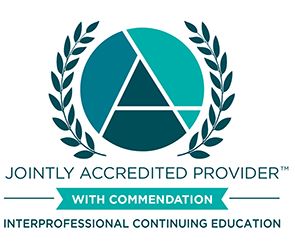 | In support of improving patient care, this activity has been planned and implemented by the University of Wisconsin–Madison ICEP, The Brain Injury Alliance of Wisconsin, and SOAR Fox Cities. The University of Wisconsin–Madison ICEP is jointly accredited by the Accreditation Council for Continuing Medical Education (ACCME), the Accreditation Council for Pharmacy Education (ACPE), and the American Nurses Credentialing Center (ANCC), to provide continuing education for the healthcare team. |
Credit Designation Statements
American Medical Association (AMA)
The University of Wisconsin–Madison ICEP designates this in person, live activity for a maximum of 7.25 AMA PRA Category 1 Credit™. Physicians should claim only the credit commensurate with the extent of their participation in the activity.
American Nurses Credentialing Center (ANCC)
The University of Wisconsin–Madison ICEP designates this in person, live activity for a maximum of 7.25 ANCC contact hours.
ASWB Approved Continuing Education (ACE) – Social Work Credit
As a Jointly Accredited Organization, the University of Wisconsin–Madison ICEP is approved to offer social work continuing education by the Association of Social Work Boards (ASWB) Approved Continuing Education (ACE) program. Organizations, not individual courses, are approved under this program. State and provincial regulatory boards have the final authority to determine whether an individual course may be accepted for continuing education credit. University of Wisconsin–Madison ICEP maintains responsibility for this course. Social workers completing this course receive 7.25 in person, live continuing education credits.
American Psychological Association (APA)
 | Continuing Education (CE) credits for psychologists are provided through the co-sponsorship of the American Psychological Association (APA) Office of Continuing Education in Psychology (CEP). The APA CEP Office maintains responsibility for the content of the programs. |
Continuing Education Units (CEUs)
The University of Wisconsin–Madison ICEP, as a member of the University Professional & Continuing Education Association (UPCEA), authorizes this in person, live activity for .725 continuing education units (CEUs) or 7.25 hours.
Available Credit
- 7.25 AMA PRA Category 1 Credit™
- 7.25 ANCC Contact Hours
- 7.25 APA CE Credits
- 7.25 University of Wisconsin–Madison Continuing Education Hours
- 7.25 Approved for AMA PRA Category 1 Credit™
Interested in Sponsoring this Conference or Being an Exhibitor?
Audrey Nelson, MS, BSW, Executive Director, Brain Injury Alliance of Wisconsin
Questions?
Registration
Conference Information
Audrey Nelson, MS, BSW, Executive Director, Brain Injury Alliance of Wisconsin
Erin Schultz, MSW, Executive Director, SOAR Fox Cities, Inc.
Required Hardware/software
Free, current version of Chrome, Firefox, Safari, or Microsoft Edge with audio and video capabilities. Some older browsers and Microsoft Explorer could produce error messages or not display the content correctly.

 Facebook
Facebook X
X LinkedIn
LinkedIn Forward
Forward